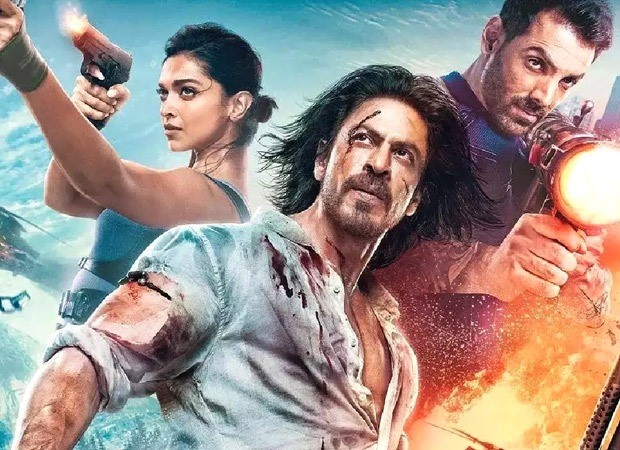
‘Pathaan’ on OTT: Delhi HC directs Yash Raj to include audio, Hindi subtitles

Days before Shah Rukh Khan-starrer Pathaan’s release, the Delhi High Court on Monday directed producer Yash Raj Films to prepare the film’s subtitles, closed captioning (time-synchronized text of the dialogues) and audio description in Hindi so that it can also be enjoyed by the hearing and visually impaired persons on Over-The-Top (OTT) platforms. The movie is set to be released in theatres on January 25 and will subsequently stream on Amazon Prime in April this year.
Justice Prathiba M Singh directed Yash Raj Films to prepare the film’s audio description, closed captioning and subtitles within two weeks and submit it to the Central Board of Film Certification (CBFC) for a decision on re-certification by February 20.
Making the film disabled-friendly
The court’s order came when it was hearing a plea seeking direction to make captions in the movie accessible for visually and hearing-impaired persons. The petition was moved by various People With Disability (PWDs), including a law student, a clutch of lawyers and the Executive Director of the National Association for the Deaf. Seeking enforcement of various rights and accessibility requirements prescribed under the Rights of Persons with Disabilities Act, 2016, they sought the inclusion of audio description, closed captioning and subtitles in the film.
Also read: Shah Rukh Khan is 4th richest actor in world, beats Tom Cruise, Jackie Chan
While most films streamed on OTTs like Amazon and Netflix have subtitles, the petitioners rued the fact Pathaan’s subtitling has been made only in English language and not in the language of the movie: Hindi. As for audio description and closed captioning, though they are integral to the films being enjoyed by persons with disabilities, hardly any film released in India takes these into account.
No sanctions for non-compliance, guidelines flouted
Rahul Bajaj, one of the petitioners who appeared in person, submitted that the film Pathaan, like most films released in India, will not make available audio description and closed captioning. In his submission before the court, Bajaj stated that though certain guidelines have been issued in the past regarding audio description and closed captioning, it has not been implemented.
The Ministry of Information and Broadcasting had issued certain directions in October 2019 to film producers associations and the CBFC to use audio description and closed captioning in all films, but producers tend to get away since there are no sanctions for non-compliance.
Pathaan’s subtitles have been approved by the CBFC, but the subtitling has been made only in English language and not in Hindi, the language of the film. The counsel appearing for Yash Raj Films submitted before the court that the film had already been approved by the CBFC and that at the time of approval, subtitles were submitted only in English language.
The producer told the court that it would be willing to take any required step in a reasonable manner to ensure that its films are enjoyed by the hearing and visually impaired persons as well.
Also read: ‘Pathaan’ trailer drops, SRK promises high-octane action and Twitter reacts
The petitioners also sought directions on the Ministry of Information and Broadcasting and the Department of Empowerment of Persons with Disabilities in the Ministry of Social Justice & Empowerment to notify required standards in this regard.
The larger problem
Bajaj told the court that theatres in some foreign countries make provision for headphones to be plugged into a seat through which the audio description, subtitle or closed captioning is relayed in an audio format. He lamented that there was no such facilities available in most film theatres in India.
Persons with visual impairment, however, can enjoy audio description of the films through applications which can be downloaded on smartphones. But the producer of the film needs to have an arrangement with the application, Bajaj said, adding that two applications are presently offering such services in India.
Noting that the petition raises “very important issues” related to to accessibility of entertainment to the hearing and visually impaired persons, the court said that as per Section 42 of RPwD Act, the government has an obligation to take measures to ensure that all content is available in accessible formats for persons with disabilities.
The Central government counsel sought time to obtain instructions regarding the actual status of the relevant guidelines and directions which have been issued as well as their implementation.


